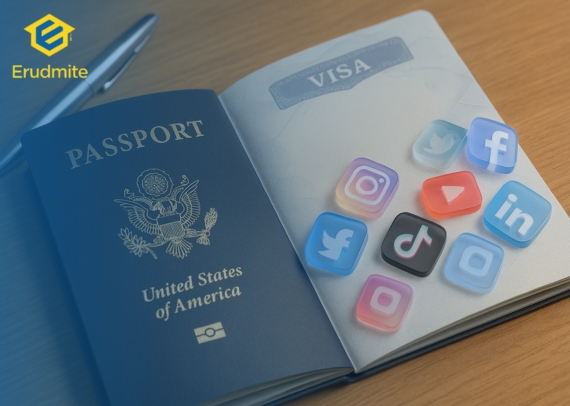
Introduction
In a significant policy shift, the U.S. State Department has temporarily halted the scheduling of new student visa interviews. This move precedes the implementation of expanded social media vetting for all international student applicants, signaling a heightened focus on national security concerns.
Policy Overview
On May 27, 2025, Secretary of State Marco Rubio issued a directive to U.S. embassies and consulates worldwide to pause the scheduling of new interviews for student and exchange visitor visa applicants (F, M, and J visas). This pause is in preparation for the rollout of enhanced social media screening procedures.
The expanded vetting process will involve a thorough review of applicants’ social media activities to identify any potential security threats. The administration asserts that this measure is necessary to prevent individuals with extremist affiliations or sympathies from entering the United States.
Implementation Details
While the exact parameters of the social media screening have not been publicly disclosed, the State Department has indicated that consular officers will receive new guidelines outlining the scope and methodology of the vetting process. This initiative is part of a broader effort to enhance the screening of visa applicants and ensure that individuals who may pose a threat to national security are identified and denied entry.
The administration has emphasized that the pause in scheduling new interviews is temporary and that further guidance will be provided to embassies and consulates in the coming days.
Impact on International Students
The halt in visa interview scheduling and the impending implementation of expanded social media vetting have raised concerns among prospective international students and educational institutions. Universities, which rely heavily on international students for enrollment and revenue, fear that these measures could deter applicants and disrupt academic plans.
Students who have already scheduled their visa interviews will proceed under existing procedures. However, those who have not yet secured appointments may face delays, potentially affecting their ability to commence studies in the upcoming academic term.
Legal and Ethical Considerations
Let’s go deeper into the emotional root causes that many people overlook:
The expanded social media vetting policy has sparked debate over privacy rights and the potential for discrimination. Critics argue that scrutinizing applicants’ online activities may infringe upon freedom of expression and lead to the exclusion of individuals based on their political views or affiliations.
Civil liberties organizations have expressed concern that the policy could disproportionately affect applicants from certain regions or those involved in activism, particularly related to contentious geopolitical issues. There is apprehension that the vetting process may lack transparency and accountability, leading to arbitrary or biased decisions.
Response from Educational Institutions
Educational institutions across the United States have voiced apprehension regarding the potential impact of the new policy on international student enrollment. Universities emphasize the value that international students bring to academic communities and the broader economy. They advocate for policies that balance security concerns with the commitment to maintaining an open and inclusive educational environment.
Some institutions are exploring legal avenues to challenge the policy, citing potential violations of constitutional rights and the detrimental effect on academic freedom. There is a concerted effort to engage with policymakers to seek clarity and advocate for fair and equitable treatment of international applicants.
Global Implications
The United States has long been a preferred destination for international students seeking higher education opportunities. The implementation of stringent vetting measures may influence students’ decisions, prompting them to consider alternative countries with more accessible immigration policies. This shift could have long-term implications for the U.S. higher education sector and its global competitiveness.
Countries such as Canada, the United Kingdom, and Australia may see an uptick in international student applications as a result of the perceived challenges associated with obtaining U.S. student visas. This potential redirection of student flows underscores the need for balanced policies that safeguard national security while preserving the United States’ reputation as a welcoming destination for international scholars.
Conclusion
The Trump administration’s decision to halt new student visa interviews and implement expanded social media vetting represents a significant development in U.S. immigration policy. While aimed at enhancing national security, the policy raises important questions about privacy, freedom of expression, and the potential impact on international education.
As the policy unfolds, stakeholders including students, educational institutions, and policymakers will need to navigate the evolving landscape, balancing security imperatives with the values of openness and inclusivity that have long characterized the U.S. higher education system.
Note: This article is based on information available as of May 28, 2025. For the most current updates, readers are encouraged to consult official U.S. State Department communications and reputable news sources.
